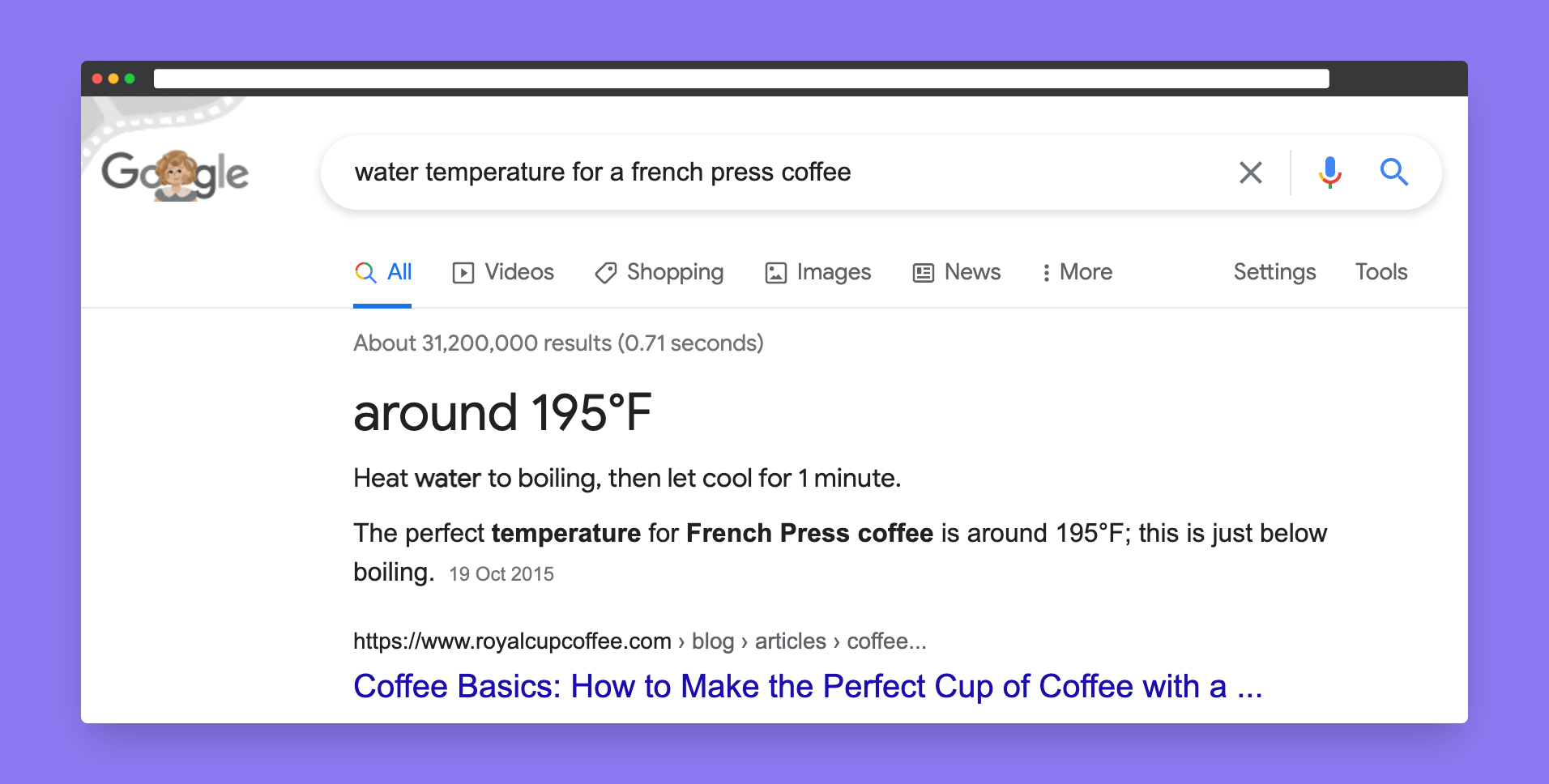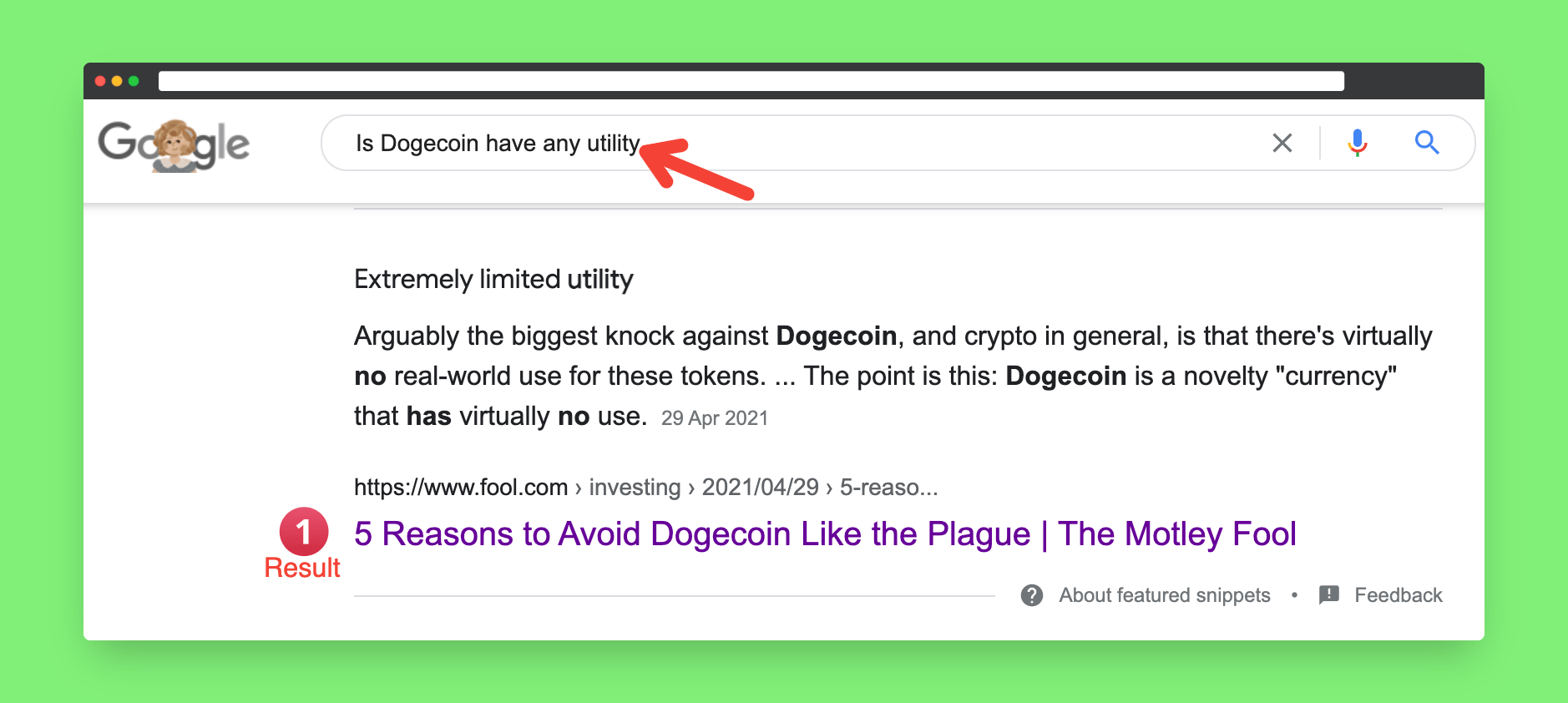The best place to hide a dead body is page two of Google
| Hack | Budget | Time |
|---|---|---|
Update exisitng content | $0 | 20 minutes per each content assets |
It seems no one wants to listen to your story, including Google.
A recent Google core update released on the 2nd of June has shaken the businesses and digital marketing to the core.
It is a fundamental shift in how we write and convey our core message to our visitors.
#What happened with the "June Core Google Update"?
People lost traffic. Why? They lost their rankings on the Google search. Doh! 🙄
tl;dr
When you are writing online, just come to the point quickly. Leave the fluff out. Make your points succinctly and let the visitors get the gist super fast. That's what Big G wants. To stand a chance, prepare to play by the book.
For non-SEOs: Big G == Google
Action Steps:
Investigate your rankings. See traffic fluctuations. Spend time on which content comes under threat of the Google penalty.
I hope you have the Google search console.
1.) Use Google search console filters and make a list of the top 10 posts that got the most traffic to your blog or business before the update.
2.) Use the filters and find the latest traffic (after June 2 2021) for the posts you got from the first step.
3.) Go through each content piece and see where you can make changes, and leave the non-essential explanations out of it.
Write for one person- Come to the point.
- Remove the cliches, if any.
- Tidy it up with crisp editing.
4.) Add a bit of personality. Use "I" and "You" more. Don't overdo it. Just be natural.
5.) Resubmit the pages/posts/content in the Google search console to re-index.
6.) Rinse and repeat.
7.) Watch your traffic and keep an eye on SEO reports.
Tip: Keep a note in your mind and start writing content that is useful to the end-user.
Non tl;dr
#Does Google kill "The Art of Storytelling"?
No. Please allow me to write some fluff 😉
There's an important thing that happened across the board in the SEO world with huge sweeping changes from Google.
All the SEOs are scratching their head.
A lot of businesses lost organic traffic that is coming free from Google.
All is not bad news as some businesses lost significant traffic while some gain.
One Man's Loss Is Another Man's Gain.
The truth is when you lost your SEO rankings; someone would take over your position. That's how real-world SEO works. Let's hope it's not your direct competitor.
Neither we hope nor afraid of our competitors. I rolled my sleeves on behalf of my clients and started investigating.
I found an emerging clear pattern across the board and confirmed by fellow marketers and blogger like none other than NEIL PATEL.
#How to combat the latest Google Core update?
I am a big proponent of storytelling. I always start my blog posts or sales letter with an interesting story or use a technique called AIDA (Attention, Interest, Desire & Action).
It is very important to have a hook in the beginning to maintain the tempo. Storytelling becomes a phenomenon in every part of the online presence. It literally makes or breaks the business.
#What should you do now?
Make sure your content is helpful and fulfil the search intent.
Make sure you answer the visitor query as soon as possible.
Cut the unnecessary explanation and come to the point.
Don't leave the visitor in limbo. Don't confuse them; give your opinion even though your advice is highly opinionated.
We are sacrificing the story for the traffic, but there's no need to sacrifice your personality. Be more personal and opinionated.
For example, you are a huge Bitcoin proponent; then you state your opinion clear and loud.
You may think one day Bitcoin will replace the traditional currency. That's okay. Stop telling anecdotes about why Bitcoin is great.
Just explain your point(s) and provide all the charts, graphics and history.
#Is storytelling a problem now?
No, but Google wants us to change our approach by forcing us to work diligently this time around. They want us to help the visitor as fast as possible. That means if you write the fluff, then Google put you back in the queue.
As you know, you don't want to be there as the best place to hide a dead body is page two of Google.
#Is storytelling dead for writing online?
No, It is not dead.
Storytelling is super profitable to any business. Leaving that out is a significant risk to your business.
I highly recommend this book on Storytelling. It's my favouorite book.
If you are short on time then I made it simple for you as I read the book and wrote my summary here => https://5pagesaday.com/series/building-a-storybrand/
#Where storytelling still works?
Almost everywhere except answering questions.
- Sales pages
- Squeeze pages
- Longform blog content
- Books
- Whitepapers
- Case studies
- Brochures
Some queries need straight answers. Just accept it.
Don't worry about writing a 3,000 word article. Write to the point and be insanely helpful.
An example would help, so here you go.
CASE STUDY #1:
Search query: water temperature for a french press coffee?
The potential answer is: It's around 195°F.

Imagine if you start to write a story for this. "Once upon a time when I bought a french press from Amazon, and it came broken, and I had to return it before I get this cute little yellow french press."
Is it necessary? No, 100% not necessary. Come to the point.
Tip: But if you are making video content for youtube, always start your video with a story.
CASE STUDY #2:
Search query: Is Dogecoin have any utility, or is it just another shitcoin?
Here you have a chance to induce a bit of story. You might have lost heavily on a Dogecoin or made millions. Plug your story and then follow up with your opinion. Storytelling works here.

The first result is from a fool.com website, and the author has come to the point after three paragraphs. It took 350 words to say something useful to the visitor. Yet, it is sitting top of the Google search result.
What does it tell us?
Story (or a hook) is still a big thing, but you have to be careful how you do it.
Understand the searchers intent.
Be in your Googlers shoes. What would you expect if you are searching for the information? Use commonsense.
#What happens when you lost traffic?
Your business slows down. Rather than finding you (or your products or your services), the prospective customers are finding your competitors who gained in the SEO rankings by moving positions above you.
That's why I always suggest you make your marketing diversify. Don't just depend on organic traffic (aka search engine traffic).
Be present on Omni channels. Contact me here, and I can help you to diversify your traffic using different channels.
Your business should diversify to other traffic sources like
- SEO
- SEM
- Ads
- Video
- Email Marketing
- Partnership program
- Outbound sales
- Social media marketing
- Podcasting
- Word of mouth
- Client referrals
- Partnerships
- Case studies
- White papers
Summary:
Find the searchers intent and provide the answer target early in your content. Make it simple. Crack the code and make your visitor happy.
Don't forget to insert a bit of character.
Don't abandon the storytelling. It is still a major spinoff in your business.
You want me to write your copy, then contact me.